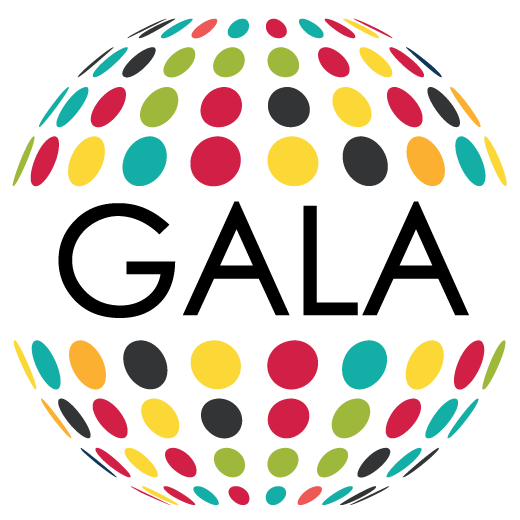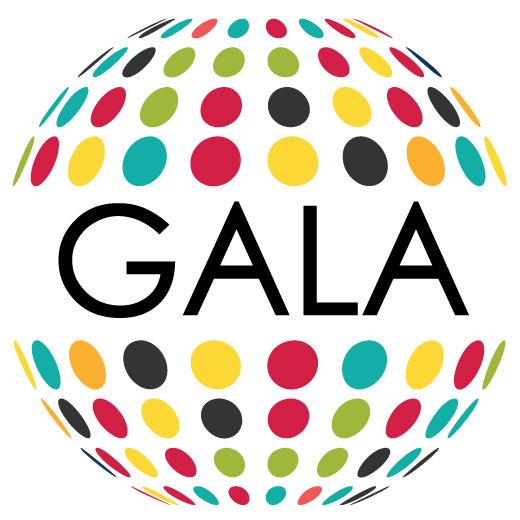
Rebecca McGuire-Snieckus
GALA 10th annual conference: How can the liberal arts help a world in crisis?
Posted on May 29, 2024

We are delighted to share the provisional programme* for the 2024 Global Academy of Liberal Arts (GALA) annual conference which coincides with the 10-year anniversary of the GALA network, and will be hosted by the founding institution, Bath Spa University, England, during 13-15 September. In the light of the degree to which the world has changed over the past decade and the context in which we now find ourselves in, a world marked by global polarization, ecological crisis, and the rise of AI, placing humanity itself under threat worldwide, the theme of the conference is on How can the liberal arts help a world in crisis? The sub-themes of the conference include: Environmental crisis, Art for Social Change, Digital Threats and Opportunities, Indigenous Voices and Justice, and Power, Peace and Healing.
The conference event is free to all staff and students who are from any of the partner institutions of the Global Academy of Liberal Arts. The in-person fee for staff from non-GALA partners will be £150, and for students from non-GALA partners, £100 (and free to non-GALA partners that wish to attend remotely).
*please note the programme is subject to change.
Pre-conference event
Thursday 12 September, 2024
6.15 – 7 pm Performance
| A Brazilian perspective of resisting through dance and songwriting. | |
| Written and directed by professor Alexandra Dias, UFPel,
Performed by Maria Falkembach UFPel |
BITCH, a dance spectacle |
Day 1 Friday 13 September, 2024
Bath Royal Literary and Scientific Institution
9 –10 am Plenary
Introduction by Ian Gadd and Rebecca McGuire-Snieckus
Roundtable by founding members of the Global Academy of Liberal Arts including Antonella Riem (Bodies Moving in Partnership, Udine University), Josh Goode (Historical Perspectives of Partnership, Claremont Graduate University), Claudia Egerer (GALA’s impact on forging international collaborations between scholars and students, Stockholm University) and John Strachan (Partnership in Evolution, Bath Spa University).
10 – 11 am Session 1 (2 parallel sessions)
| Session 1: Art for Social Change | |
| Samuel Nyanchoga, CUEA, Kenya | Beyond the Books: Can Liberal Arts Education Nurture Responsible Citizenship in Kenya? |
| Shilpa Das, National Institute of Design, India | How a Liberal Arts Programme sits in a Design Institute in India: Historical trajectories and Identity Politics |
| Session 1: Power, Peace and Healing | |
| Meg Pirie, Bath Spa University | The Creative Wellbeing Economy |
| Wesley Beal, Lyon College, USA | Personal Transformation for a World in Crisis |
11 am – 12 Session 2 (2 parallel sessions)
| Session 2: Environmental Crisis | |
| Steven H. Corey, Columbia College Chicago, USA | Environmental Humanities as the New Liberal Arts |
| Claudia Egerer, Stockholm University, Sweden | Thinking human-nonhuman relationships with a liberal arts perspective |
| Session 2: Digital Threats and Opportunities | |
| Priya Thapa, Bath Spa University, England | Equipping students with digital literacy and creative problem-solving skills. |
| Tina Rozsos, University College Roosevelt, Netherlands | Promoting data literacy across the liberal arts curriculum |
12 – 2 pm Break
2 – 3.30 pm Session 3 Workshop (2 parallel sessions)
| Session 3 Workshop: Co-creating a week-long global festival of the humanities; jointly programmed with community, business and public policy. | |
| Rebecca DiCorpo, Bath Spa University | More information to follow |
| Session 3: Student Workshop | |
| TBC | TBC |
3.30 – 5.30 Mayor’s Walk
Bath is one of only two UNESCO World Heritage Cities in Europe. Come and find out why!
Max. 55. You must sign up in advance for this event. More to follow.
6- 7 pm – Reception
Details TBC
Day 2 Saturday 14 September, 2024
Newton Park Campus,
Bath Spa University
Note: transportation will be provided from the city centre
8.30 – 9 am Tea/ Coffee
9 -10am Keynote
Professor Juliet Thondhlana
UNESCO Chair in International Education and Development
10 – 11 am Session 4 (2 parallel sessions)
| Session 4: Environmental Crisis | |
| Alessio Malcevschi, University of Parma, Italy | Living in the age of the polycrisis: how complex crises emerge and how humanities can confront them. |
| Romanus Shivoro, University of Namibia, Namibia and Colinne Bartel
AC Innovation, Germany |
Assessing ESG Performance in the African Material Sector: A Quantitative Analysis of Key Indicators |
| Session 4: Power, Peace and Healing | |
| Douglas Andrews, The University of the Witwatersrand, South Africa | An exploration of how school leaders navigate the possible tensions between the ‘ideals of inclusion’ and the ‘ideals of excellence: a CHAT perspective. |
| Gavin James Bower, Bath Spa University | The Future of the Humanities: Crisis or Opportunity |
11 am- 12 Session 5 (2 parallel sessions)
| Session 5: Power, Peace and Healing | |
| Tanja Sakota, University of the Witwatersrand, South Africa | Unveiling hidden memories: exploring the relevance of autoethnographic film for social change |
| Sheku Ahmed Fofanah, Bath Spa University, England | A Framework for Building a Responsive Local Government System in Sierra Leone: Integrating Felt Needs Fulfilment Model with the Hybridity of Paramount Chiefs |
| Session 5: Digital Threats and Opportunities | |
| Yara Gawrieh Ekmark, Stockholm University, Sweden | The Ecocritical Instapoet: Digital Media Ecofeminist Poetry |
| Luca Cossettini, Udine University, Italy | For whom the algorithm tolls? |
12 – 2 pm Lunch & networking
2 – 3.30 pm Session 6 (2 parallel sessions)
| Session 6 Panel: Liberal Arts Across Borders | |
| Joshua Goode, Professor of History and Cultural Studies, Claremont Graduate University, | This panel will address how the liberal arts can address the resurgence of borders. Underpinned by research on the impact of borders on the formation of the historical disciplines, museums and heritage ideas in the modern period, we will explore the lessons derived from international exchanges, both within and outside the GALA network, that have been particularly focused on museums dedicated to local and national histories. The focus of all three presentations is on how the liberal arts narrow a wide world by clarifying what real similarities and differences exist between places and how the comparison can help the creation of new transcultural approaches and experiences that transcend borders. |
| David Sprott, Henry Y. Hwang Dean of the Drucker School of Management, Claremont Graduate University, | |
| Astrid Swenson, Professor of History and European Culture, Natalia Brazao-Cortas, PhD Candidate, Cultural Studies, Claremont Graduate University | |
| Session 6: Indigenous Voices and Justice | |
| Hayley Haynes-Rolando and Phethile Zitha, University of the Witwatersrand, South Africa | The stories of a community-based intervention, collaboratively addressing the violence in a Johannesburg township high school in South Africa. |
| Mattia Mantellato, Università degli studi di Enna “Kore”, Italy | Shaman Caliban: Shakespeare’s The Tempest as a Native/Indigenous Narrative to Rethink the Other and the World |
| Zelealem Leyew Temesgen, Addis Ababa University, Ethiopia | Little attention to crucial issues: Linguistic challenges and the Africa envisioned in the African Union (AU) Agenda 2063 |
3.30– 4.30 pm Session 7 (2 parallel sessions)
| Session 7: Digital Threats and Opportunities | |
| Mahir Jibril Ahmed, Addis Ababa University, Ethiopia | Techno-feudalism and its overshadowing effect on education |
| Małgorzata Wójcik, SWPS University of Social Sciences and Humanities, Poland | RESQL: A Digital Solution for Addressing Bullying and Cyberbullying in Schools |
| Session 7: Art for Social Change | |
| Jennifer Clark, University of Adelaide, Australia | ‘Re-Dressed’: Using an artistic response to study historic collections in the Foundling Museum, London |
| Alemtsehay Lemma Tadesse, Addis Ababa University, Ethiopia | Invisible theatre for social change |
4.30 – 5pm Refreshments
5 – 6 pm Session 8 (2 parallel sessions)
| Session 8: Power, Peace and Healing | |
| Obsu, Fiseha Moreda, Addis Ababa University, Ethiopia | Interdisciplinary Approaches in the Liberal Arts: Bridging Gaps and Addressing Global Challenge |
| Serra Hughes, University of Amsterdam, Netherlands | Communicating across social, cultural and political divides |
| Session 8: Environmental Crisis | |
| Alem Sitot Getaneh, Addis Ababa University, Ethiopia | Exploring Contemporary Trends of African Literature: Selfless Devotion for Socio-Political Transformation in Ben Okri’s Starbook and Ngugi wa Thiong’o’s Wizard of the Crow |
| Engdaye Mersha Weldemariam, Addis Ababa University, Ethiopia | Repercussions of land use and land cover on natural ecosystems and socioeconomic systems. |
6.15 – 7 pm Performance
| A Brazilian perspective of resisting through dance and songwriting. | |
| Written and performed by professor Leandro Maia, UFPel,
Directed by Maria Falkembach (UFPel) |
The Stray Mongrel Dog: an autobiographical illusion, or Guaipeca |
7.30 – 10 pm Dinner
TBC
Day 3: Sunday 15 September, 2024
Locksbrook Campus,
Bath Spa University
(Walking distance from city centre, bus route information and timetable to follow)
9 – 9.30 am Tea/ Coffee
9 .30– 10.30 am Session 9 (2 parallel sessions)
| Session 9: Environmental Crisis | |
| Diriba Muleta, Addis Ababa University, Ethiopia | Climate change and biodiversity: the role of soil microbes in enhancing resistance of plants to diverse stressful conditions |
| Abere Fenta Getie, Addis Ababa University, Ethiopia | Heavy metal levels in water and sediment samples of Dire and Aba-samuel Reservoir Ethiopia |
| Session 9: Art for Social Change | |
| Penny Hay, Bath Spa University, England | Forest of Imagination as an Aesthetic Imaginary |
| Renzo Filinich Orozco, The University of the Witwatersrand, South Africa | Towards a possible future of Latin American Cosmotechnics |
10.30 – 11.30 am Session 10 (2 parallel sessions)
| Session 10: Environmental crisis | |
| Paul Reid-Bowen, Bath Spa University, England | Teaching in the Ruins: from collapsology to collapsosophy |
| Renée van de Schaft, University of Utrecht, Netherlands | Between Human Guilt and Hopeful Shadowplaces: Purity, Chemosociality and Multispecies Relations in Ned Beauman’s Venomous Lumpsucker |
| Session 10: Power, Peace and Healing | |
| Camilla Pontiggia The University of the Witwatersrand, South Africa | The Hi-Stories of whitenoisewhitegirl: Unravelling a Colonial Blueprint. |
| Mohamed Mahid Shareef, Maldives Anti-Doping Association, Maldives | Understanding Leadership Role in Local Councils for Effective Service Delivery: A Staff-Centric Approach |
11.30 am – 12.30 Session 11 (2 parallel sessions)
| Session 11: Environmental Crisis | |
| Sarah Hayes, Bath Spa University, England | Postdigital Citizen Science and Humanities: how do citizen researchers understand their roles and contributions towards helping a world in crisis? |
| Shimelis Gizachew Desalegn, Addis Ababa University, Ethiopia | Sustainable supply chain management in the agricultural sector in Ethiopia |
| Session 11: Power, Peace and Healing | |
| Richie Daly, Concordia University, Canada | A Blackened Atlantic Poethics – Strandings, the Sea and Trinidad and Tobago |
| Johannes Machinya, University of the Witwatersrad, South Africa | mHealth Applications in South Africa: The Power and Pitfalls of User Data Marketisation |
12.30 – 1.30 pm Lunch
1.30 – 2.30 pm Session 12 ((2 parallel sessions)
| Session 12: Art for Social Change | |
| Amanda Bayley Bath Spa University and the University of Namibia | Transforming Lives through Ethnomusicological Engagement in Kwando, Namibia |
| Leandro Ernesto Maia, Bruna Oliveira and Maria Fonseca Falkembach, Universidade Federal de Pelotas, Brazil | Cultural Policies as Social Change: from dance mapping towards arts policies |
| Session 12: Power, Peace and Healing | |
| Anusia Govender-Elshove, University of the Witwatersrand, South Africa | The Silent Dancers |
| Aklilu Dessalegn Zewdu, Addis Ababa University, Ethiopia | South African post-apartheid literature: shaping a better future for the next generation of South Africans |
2.30 – 3.30 Plenary Conclusion & Next steps
Accommodation
We recommend three hotels that are located in the Bath city centre
Explore the historic city of Bath with an affordable stay at the Travelodge Bath Waterside hotel, close to the Roman Baths and the Jane Austen Centre
Holiday Inn Express Bath is a 15-minute walk from the magnificent Roman centre of Bath, a World Heritage city. Free WiFi is available throughout.
Set on the banks of River Avon, we’re half a mile from Thermae Bath Spa, The Roman Baths, and great shopping.
About the Global Academy of Liberal Arts
The Global Academy of Liberal Arts is an international community of diverse, innovative, and socially responsible universities and colleges, transforming lives and enhancing global understanding through interdisciplinary collaboration in teaching and research. With 17 partners in 13 countries, it is a truly global network.
About Bath Spa University
GALA was established in 2014 by Bath Spa University, a creative, innovative and enterprising University in the South West of England. With nine dedicated research areas, nearly 60% of research was ranked in the 2021 Research Excellence Framework as ‘internationally excellent’ or ‘world leading.’,
For any enquiries you can contact gala@bathspa.ac.uk
If you have any comments or questions, please contact gala@bathspa.ac.uk


Responses